Will my summer holiday flights be cancelled?
- Published
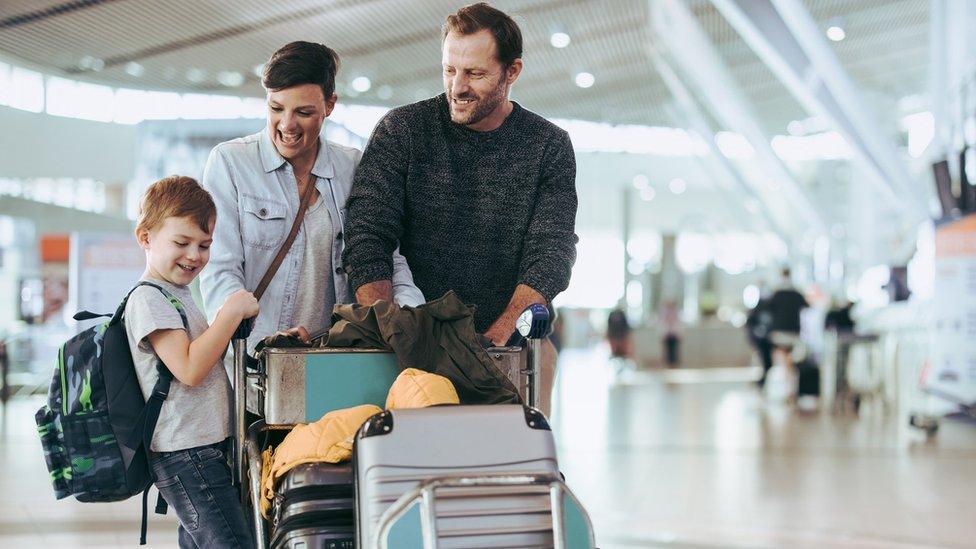
Flight cancellations and airport delays are expected to continue this summer, affecting many people's holiday plans.
British Airways and EasyJet have already removed about 40,000 flights from their schedules.
Heathrow has asked airlines not to sell any more summer tickets, as it struggles to cope with increased passenger numbers.
Which flights have already been cancelled?
British Airways (BA) is cutting nearly 30,000 flights from its April-to-October schedule in response to staffing problems.
About a million existing bookings on domestic and European routes from London Heathrow, Gatwick and City airports have been cancelled. Long-haul flights are unaffected.
EasyJet has pulled 10,000 flights between July and September.
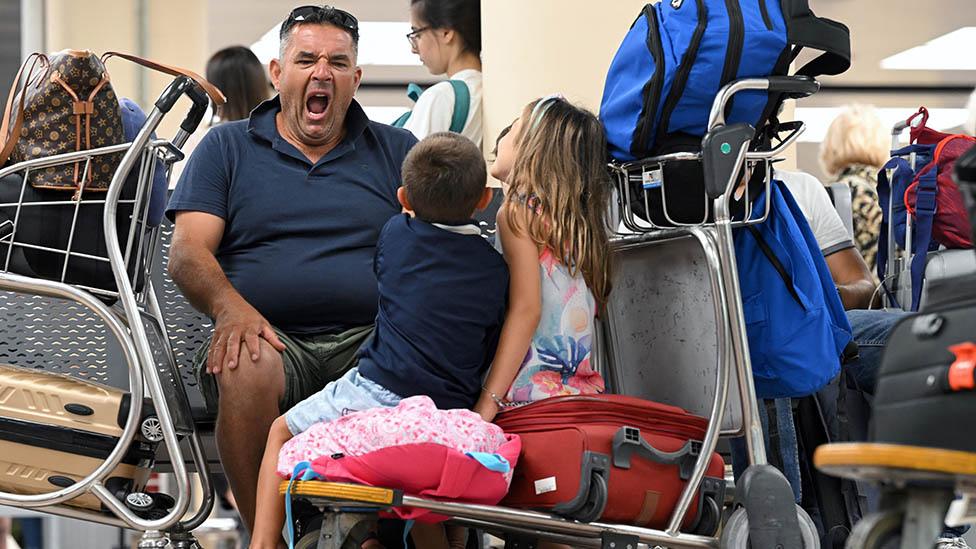
Airlines are hoping to avoid the queues, delays and cancellations which affected thousands at Easter and May half-term
In June, airlines were given a limited window, external to temporarily hand back without penalty any summer airport slots they would struggle to operate.
Transport Secretary Grant Shapps said this would "help airlines provide certainty to passengers and ensure the next few months are as smooth as possible".
But Ryanair criticised the plan, insisting it will run its full flight schedule.
What about airport capacity?
The UK's biggest airport Heathrow has told airlines to stop selling summer tickets. It wants to limit the number of passengers departing each day over the peak holiday period to 100,000, which is 4,000 fewer than currently scheduled.
Former BA boss Willie Walsh, now director general of the International Air Transport Association, criticised the "ridiculous" move.
Emirates has refused to comply with what it called an "unreasonable and unacceptable" request. It said Heathrow now faced "an 'airmageddon' situation due to [its] incompetence and non-action".
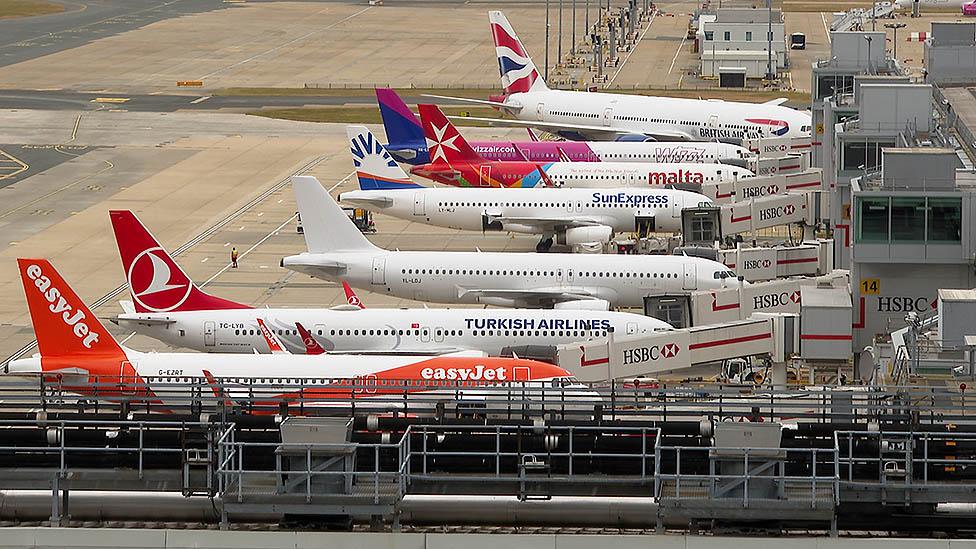
Airlines are struggling to cope with increased passenger numbers after Covid restrictions were lifted
Gatwick Airport has already reduced flight slots this summer to 825 a day in July and 850 in August, down from 900 in previous years.
The new boss of Manchester Airport has warned passengers not to expect a "great" experience this summer.
What are my rights if my flight is cancelled?
Passengers have a number of rights under UK law, external if they are:
flying from a UK airport
arriving at a UK airport on an EU or UK airline
arriving at an EU airport on a UK airline
Airlines must offer the choice of a refund or alternative flight, regardless of how far in advance the cancellation was made.
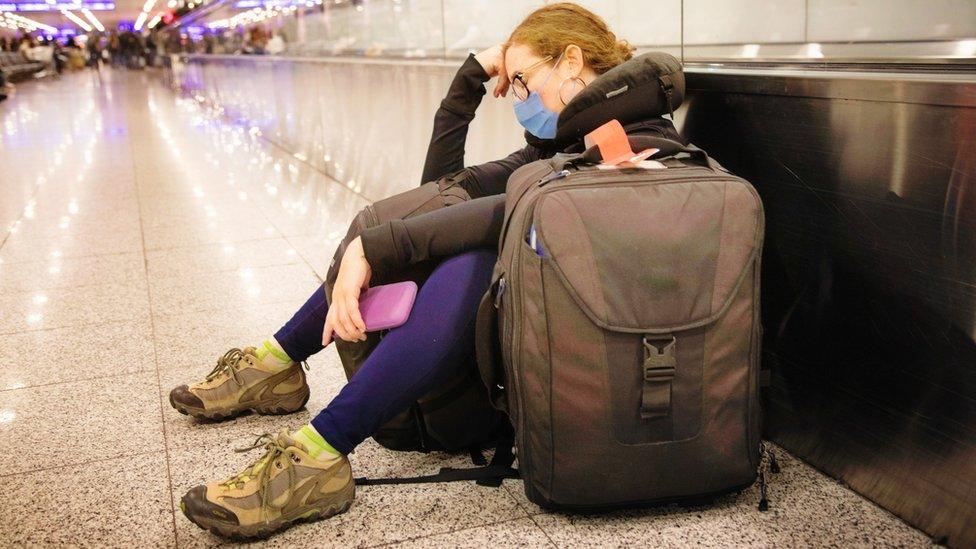
Return tickets must be fully refunded if either leg is cancelled.
And passengers have a right to be booked on another airline - or other suitable mode of transport - if it is going to their destination significantly sooner.
Which airlines are facing strikes?
Security staff, baggage handlers and airline cabin crew are also taking industrial action in a number of European countries.
Ryanair staff in Belgium, France, Italy, Portugal and Spain have been striking over working conditions and pay.
EasyJet cabin crew in Spain working from Palma, Barcelona and Malaga are striking for nine days in July, over three separate 72-hour periods in July: 1 to 3, 15 to 17, and 29 to 31.
The company said customers might experience some disruption, but that "at this stage" it planned to operate its full schedule.
However, planned strike action by BA check-in staff at Heathrow has been called off after unions said the airline had made a "vastly improved" pay offer.
In June, 700 workers voted to strike, after BA failed to reverse a 10% pay cut imposed during the peak of the pandemic.
Why are staff shortages so high?
Demand for travel has grown sharply since the final Covid travel restrictions were lifted, but many firms are struggling to cope.
Airlines UK, the industry body, said companies have cut about 30,000 jobs since the pandemic began, having employed 74,000 people in 2019.
Airports across Europe are also experiencing shortages, with operators in France reporting at least 4,000 vacancies.
Many airport staff who were laid off after the start of the pandemic have since taken jobs in other fields.
Unions accused the government and airlines of failing to properly prepare for the end of lockdown.
Gemma Antrobus, from the Association of Independent Tour Operators, said: "Getting back to those levels of staffing, of training, is not as quick and as simple as just a flick of a light switch."
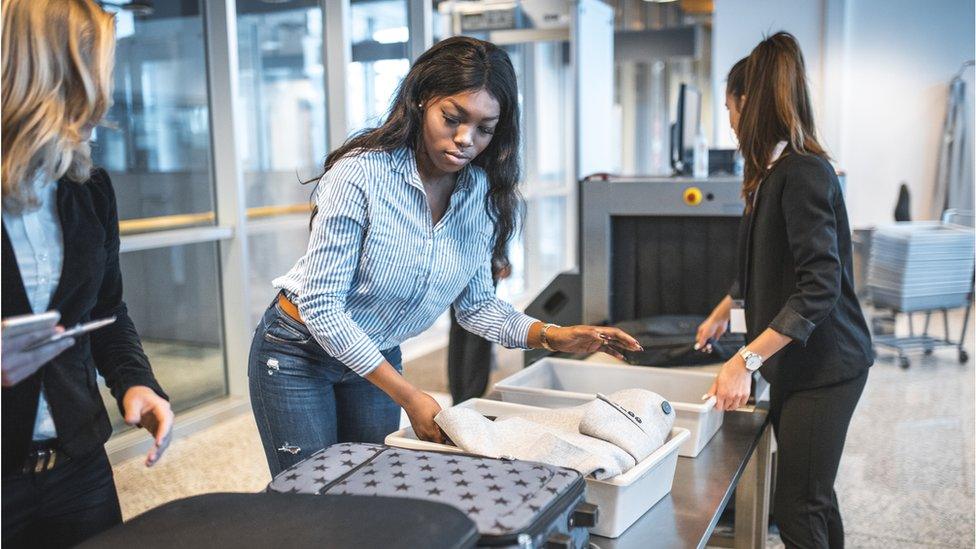
Airport security staff shortages are a particular problem, as it can take months to get workers the clearance they need to operate airside.
Swissport's UK boss, Jude Winstanley, said his company had hired 3,000 people since January, but many of them still did not have full security clearance, limiting the duties they could carry out.
The government changed the rules at the end of April to allow new staff to receive training while waiting for their final clearance.